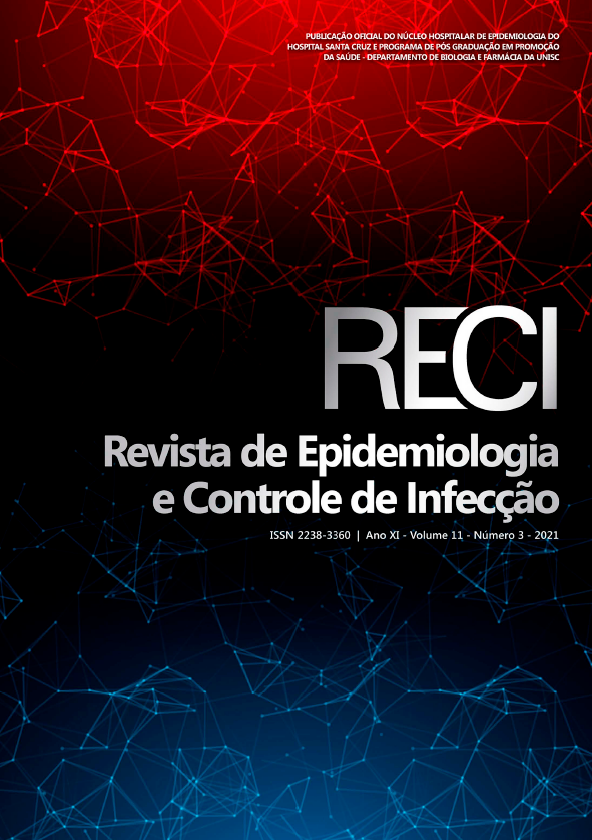Efficacy of intraoral antiseptics in SARS-CoV-2 infection control in dental clinics
DOI:
https://doi.org/10.17058/reci.v11i2.15492Palavras-chave:
Assistência Odontológica, Controle da Infecção, SARS-CoV-2, COVID-19, Antissépticos bucais.Resumo
Background and Objectives: In the context of the COVID-19 pandemic, in which the main route of transmission is through contact with contaminated saliva, routine dental procedures represent a potential risk of contagion for professionals and patients. To reduce the occurrence of cross-infection, ways of controlling oral microbial load are necessary, such as the use of preoperative mouthwashes. Thus, the aim of this literature review was to assess the potential efficacy of different intra-oral antiseptics in SARS-CoV-2 infection control in dental clinics. Content: This is a literature review, carried out in the LILACS, Cochrane Library, CAPES and MEDLINE databases, using the search terms “mouth rinse”, “dental care”, “COVID-19”, “cetylpiridinium chloride”, “povidone-iodine”, “chlorhexidine”, and “hydrogen peroxide”. Among the 46 potentially relevant articles, fourteen articles were selected, with full texts published in the last 5 years. These were analyzed and categorized according to the type of study (literature review, in vitro and in vivo studies). The antiseptics highlighted as most relevant in terms of antiviral efficacy were povidone-iodine, cetylpyridinium chloride, hydrogen peroxide and chlorhexidine. Conclusion: Little evidence has been found regarding the effectiveness of oral antiseptics against SARS-CoV-2. It is worth mentioning that some studies conducted with povidone-iodine and chlorhexidine show promising results in combating SARS-CoV-2 infection. However, conducting randomized clinical studies is extremely important to determine the effectiveness of these compounds in controlling COVID-19 in dental practice.Downloads
Downloads
Publicado
Como Citar
Edição
Seção
Licença
Copyright (c) 2021 Francisca Aline da Silva Matias, Gildenilson Oliveira Júnior, Amanda Vaz Rodrigues Fontinelle, Érika de Araújo Abi-chacra

Este trabalho está licenciado sob uma licença Creative Commons Attribution 4.0 International License.
The author must state that the paper is original (has not been published previously), not infringing any copyright or other ownership right involving third parties. Once the paper is submitted, the Journal reserves the right to make normative changes, such as spelling and grammar, in order to maintain the language standard, but respecting the author’s style. The published papers become ownership of RECI, considering that all the opinions expressed by the authors are their responsibility. Because we are an open access journal, we allow free use of articles in educational and scientific applications provided the source is cited under the Creative Commons CC-BY license.


